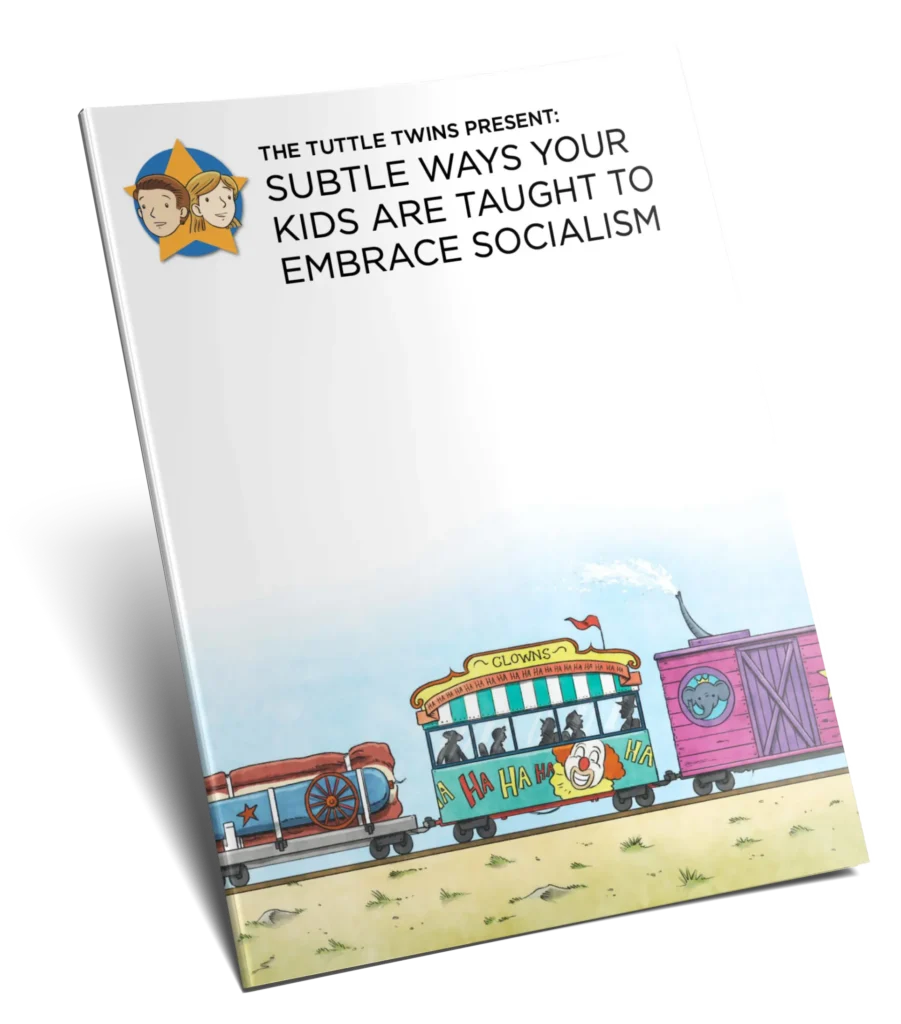
If you’ve been getting these emails for a while, you might remember that time a socialist magazine tried to make fun of us… and accidentally caused a huge spike in our book sales.
For any newsletter newcomers, a brief refresher: Current Affairs is a self-proclaimed socialist publication. Last fall, they wrote a hit piece on the Tuttle Twins series, attempting to paint our books as something along the lines of “bad propaganda.”
I can only imagine that this was intended to discredit our message, but the complete opposite happened. It would seem that condemnation by a socialist magazine proved to a lot of parents that our message was important…
Flash forward to this week, and Current Affairs is back in the headlines for an equally hilarious reason: union-busting.
You see, one of the magazine’s writers recently attempted to form a workers’ co-op, which is essentially a union. Given Karl Marx’s love affair with organized labor, this hardly comes as a surprise.
What did come as a surprise was the response from the magazine’s founder, Nathan Robinson. Rather than welcoming attempts to bring some real-life socialism to the workplace, he fired several of the employees who’d been organizing for “higher pay” and “better working conditions.”
Robinson claims this action was for reasons beyond their intent to unionize, but only he knows whether that’s the truth. A lengthy statement of his included more than a few laughable ironies. Let’s review some of my favorites…
“I found it easy to impose good working conditions and equal pay. Giving up control over running CA was a far harder thing for me to accept. This is a personal weakness that ran up against my principle…”
A socialist who doesn’t like relinquishing control… that sounds awfully familiar.
“Everyone works when they like. I’ve hardly ever exerted authority over it internally at all. Partly as a result, the organization developed a kind of messy structurelessness where it wasn’t clear who had power to do what and there was not much accountability for getting work done…The organization had become very inefficient, I wasn’t exercising any oversight, and we were adrift. I did feel that it badly needed reorganizing…”
Wait, so abolishing management structures and paying everyone the same salary doesn’t work? Color me shocked.
“Our subscription numbers had not been doing well lately and I felt I needed to exert some control over the org to get it back on track, asking some people to leave and moving others to different positions.”
You don’t say.
This failure is, of course, because if we live in a world of incentives. Incentives for our actions, our behaviors, and, yes, our labor. Some incentives are positive: for example, if you do well in your job, you tend to get paid, promoted, and rewarded. Others are negative: if you don’t keep up your end of your employment agreement, your job could be given to somebody willing to work harder.
Both types of incentives motivate us to be our best selves, solve other people’s problems, and be positive contributors to our communities. We can convince ourselves otherwise through all types of -isms and social programs, but we will never be able to rewire the human mind to disregard reward.
When we abolish incentives to perform, solve problems, and serve the needs of others, it will always lead to concentration of power. Money never goes away, but it can certainly be concealed from an overly trusting public, hoarded by the people in control.
This concept is at the core of socialism’s problems and discussed at length in our children’s book, The Tuttle Twins and the Road to Surfdom… though by buying it, you do risk putting yourself at odds with the editors of a failing Marxist magazine. We’ll leave that call to you. 
In a way, I almost feel bad for this Robinson fellow. It took him getting a Harvard education, starting his own publication, and watching it fall apart to realize his ideas don’t actually work. Imagine the time it would have saved this man to learn about socialism’s shortcomings when he was younger!
If only someone had warned him ahead of time… Perhaps through a book or some other sort of educational material.
But I digress…
—Connor

